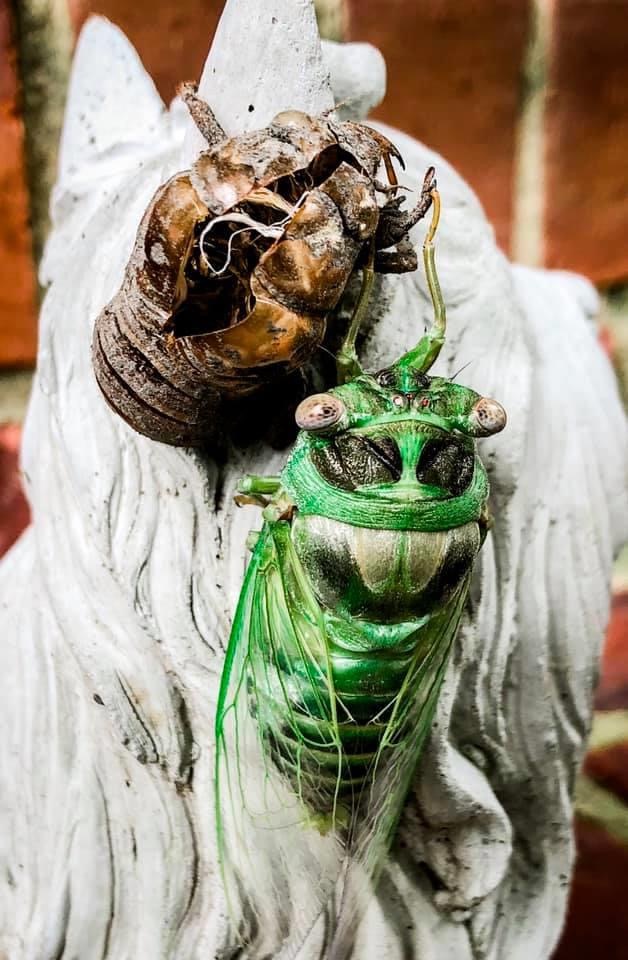
They crawl out of the ground once every 13 or 17 years to roam the southern landscape and fill the air with their high-pitched screams. Sounds like the beginning of a Southern Gothic horror novel doesn’t it? But in fact, it’s just the return of the cicada to southern, middle Tennessee.
Tennessee happens to be one of the rare states in which both the 17-year and the 13-year cicada emerges periodically. In 2020, Brood X will return after a 17 year hiatus filling our southern night air with eardrum-splitting songs. If you live in one of Moore County’s famous hollers, you know the natural acoustic can make the critters hard to escape.
According to the University of Tennessee Department of Entomology, in Tennessee, Brood XIX of the 13-year cicada had a spectacular emergence and is expected to re-emerge in 2024. In 1987, Brood X of the 17-year cicada emerged across the state and did the same in 2004. Brood X is expected to re-emerge in 2020-21. Brood X has the largest emergence of individuals for the 17-year cicada in the United States. Brood XXIII of the 13-year cicada emerged in May 2015.

An insect with a story
The red eyed insects are the subject of numerous old wives tales and superstitions. Native Americans believed cicadas were an evil omen and early American Colonists often thought they were a symbol of a biblical locust plague despite the fact that cicadas and locusts are two different species.
Cicadas don’t, in fact, devour crops and fields. True, female cicadas may damage trees while laying eggs but for the most part no long-term harm is done though homeowners and farmers should take precautions to protect very young trees. Cicadas also do not sting.
All that shrieking you’ll hear is actually a mating call from the male in his attempts to attract a female. Once they mate and the female lays eggs, cicadas aren’t long for this world. After emerging from their 17-years under ground, they only spend five to six weeks above ground before they die.
To learn more about them, visit the UT Institute of Agriculture page devoted to them by clicking here. •
{The Lynchburg Times is the only independently owned and operated newspaper in Lynchburg. We cover Metro Moore County government, Jack Daniel’s Distillery, Nearest Green Distillery, Tims Ford State Park, Motlow State Community College, Moore County High School, Moore County Middle School, Lynchburg Elementary, Raider Sports, plus regional and state news.}
